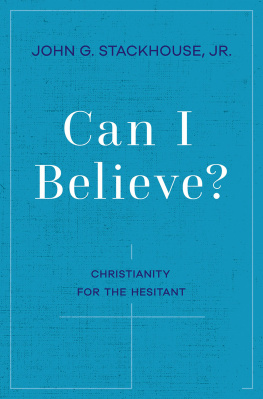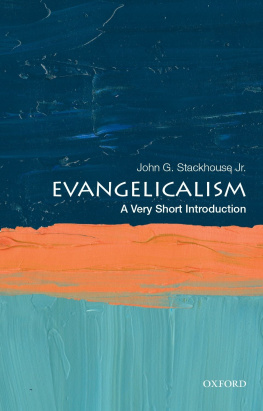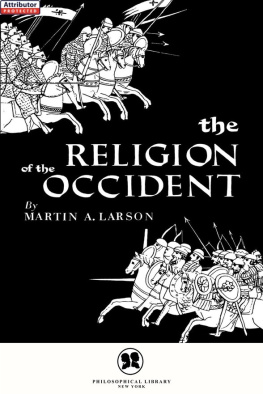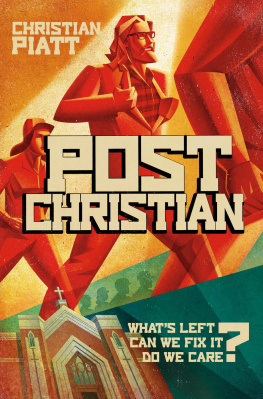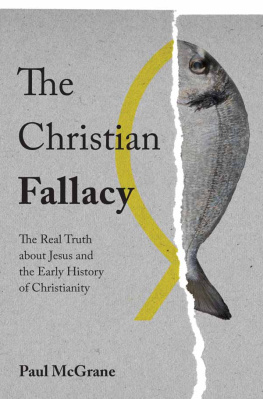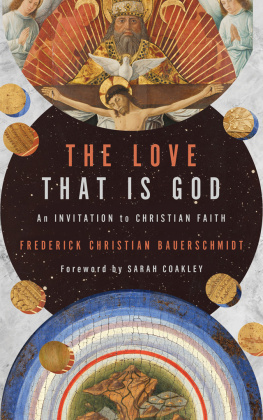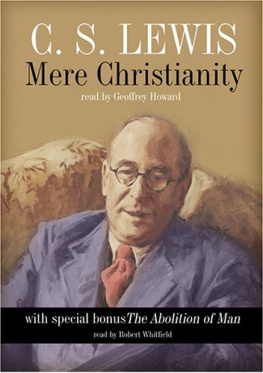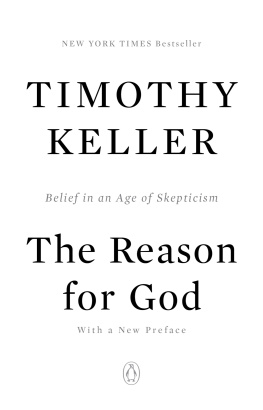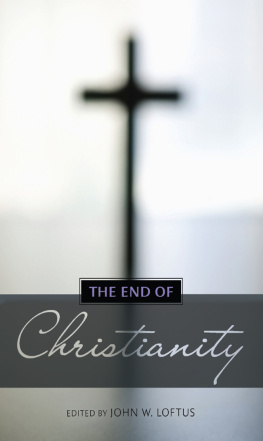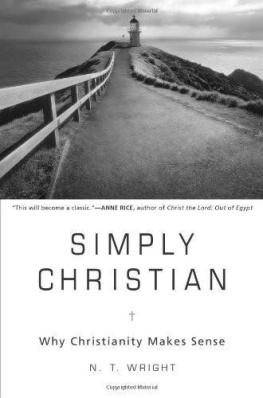Praise for Can I Believe?
Here is a book for everyone who wants their life to be in harmony with reality. If you are ready for your beliefsand your reasons for choosing themto be challenged to the core, then you should read this.
Andrew Briggs, Professor of Nanomaterials, University of Oxford
John Stackhouse strikes a brilliant balance. As a devoted Christian, he has the confidence to proselytize, yet he also has the humility to respect my intelligence, dignity, and humanity as a non-Christian. Be not afraid of his invitation. In our age of raging dogmas, who asks for simple consideration without expectation of outcome? Stackhouse, thats who. In more ways than one, this book is a counter-cultural delight.
Irshad Manji, Founder, Moral Courage Project
Intelligent, erudite, and witty, this book is a guide to answering with integrity the most important question of our lives: What kind of life is worthy of our humanity? Thats the kind of believing Stackhouse explores: the knowledge and trust needed for embarking upon a comprehensive way of life.
Miroslav Volf, Henry B. Wright Professor of Theology and Director of the Yale Center for Faith and Culture, Yale University

Oxford University Press is a department of the University of Oxford. It furthers the Universitys objective of excellence in research, scholarship, and education by publishing worldwide. Oxford is a registered trade mark of Oxford University Press in the UK and certain other countries.
Published in the United States of America by Oxford University Press
198 Madison Avenue, New York, NY 10016, United States of America.
Oxford University Press 2020
All rights reserved. No part of this publication may be reproduced, stored in a retrieval system, or transmitted, in any form or by any means, without the prior permission in writing of Oxford University Press, or as expressly permitted by law, by license, or under terms agreed with the appropriate reproduction rights organization. Inquiries concerning reproduction outside the scope of the above should be sent to the Rights Department, Oxford University Press, at the address above.
You must not circulate this work in any other form and you must impose this same condition on any acquirer.
Library of Congress Cataloging-in-Publication Data
Names: Stackhouse, John G. (John Gordon), 1960 author.
Title: Can I believe? : Christianity for the hesitant / John G. Stackhouse, Jr.
Description: New York, NY, United States of America :
Oxford University Press, 2020. |
Includes bibliographical references and index.
Identifiers: LCCN 2020016982 (print) | LCCN 2020016983 (ebook) |
ISBN 9780190922856 (paperback) | ISBN 9780190922870 (epub)
Subjects: LCSH: Apologetics. | ChristianityEssence, genius, nature.
Classification: LCC BT1103 .S726 2020 (print) |
LCC BT1103 (ebook) | DDC 239dc23
LC record available at https://lccn.loc.gov/2020016982
LC ebook record available at https://lccn.loc.gov/2020016983
for Cynthia
Let us suppose we possess parts of a novel or a symphony. Someone now brings us a newly discovered piece of manuscript and says, This is the missing part of the work. This is the chapter on which the whole plot of the novel really turned. This is the main theme of the symphony. Our business would be to see whether the new passage, if admitted to the central place which the discoverer claimed for it, did actually illuminate all the parts we had already seen and pull them together.
... If it were genuine then at every fresh hearing of the music or every fresh reading of the book, we should find it settling down, making itself more at home and eliciting significance from all sorts of details in the whole work which we had hitherto neglected. Even though the new central chapter or main theme contains great difficulties in itself, we should still think it genuine provided that it continually removed difficulties elsewhere.
C. S. Lewis
In what other field of study would so many people reach so dismissive conclusions on the basis of so little knowledge as outsiders are comfortable with in disregarding Christian truth?
Margaret Avison
Contents
I have been inspired and informed by many exemplars of such conversation about Christianity, especially classic thinkers Blaise Pascal, G. K. Chesterton, Dorothy Sayers, and C. S. Lewis, and contemporaries Os Guinness, Al Plantinga, Steve Evans, Rodney Stark, and Tom Wright. Mentors Mark Noll, Martin Marty, Nick Wolterstorff, and the late David Martin have shown me that very, very smart people could be faithful, even fervent, Christiansdoubts and all.
Crandall Universitys enlightened approach to research leaves gave me the time to write the first draft of this book. I appreciatively recall the fruitful conversations I have enjoyed on these questions with students and faculty members at Crandall as well as at Canadian Mennonite University, Carey Baptist College (Auckland), Christ College (Sydney), Fudan University, Harding University, Harvard University, Lakehead University, Morling College, Pepperdine University, Queens University (Kingston), Regent College, the Scots College (Sydney), Seoul Theological University, Stanford University, Tabor College (Adelaide), Torch Trinity Graduate School, Tyndale Theological Seminary (Toronto), the University of British Columbia, the University of Lethbridge, the University of Manitoba, the University of Northern British Columbia, the University of Otago, the University of Virginia, the University of Windsor, Wheaton College, Wuhan University, and Zhejiang University.
Friends Steve Baughman, Irshad Manji, Mickey Maudlin, Jonathan Merritt, and Randall Rauser kindly gave me advice at different stages of the writing of this book, and the faults that remain are due to their advice not being good enough. (I appreciate their trying, nonetheless.) Fair spouse, my beloved wife of four decades, has had almost nothing to do with my writing, but she has done her best with me. I, and my books, are much the better for that tireless effort.
Finally, this is the sixth volume I have published under the gentle, if also exacting, hand of editor Cynthia Read. Cynthia has been an adviser of preternatural wisdom who has become a treasured friend. It is my honor, therefore, to dedicate this book to her.
Feast of St. Michael and All Angels 2019
Can I Believe?
Take your pick: its a target-rich environment.
Creation of the entire universe in a week. A talking serpent and a death-dealing fruit. A worldwide flood. A fugitive nation hurrying on dry ground across the floor of the Red Sea. A citys walls falling flat at the sound of trumpets. The sun standing still. Any one of a hundred implausibilities that would make a reasonable person say, Come on. Get serious.
The miracles come fast and furious in Jesuss career: from walking on water to feeding a crowd from a single lunch to casting out demons to raising the dead. And then he himself gets raised from the deadand is worshipped as God, by people who knew him first asa carpenter. Really?
Maybe its the ethics that, for all their familiarity, seem absurd. Turn the other cheek. Dont even look at a woman with desire. Blessed are the meek. Love your enemies. One doesnt have to be Nietzsche to wonder if something truly weird is being taught.
Maybe its the

